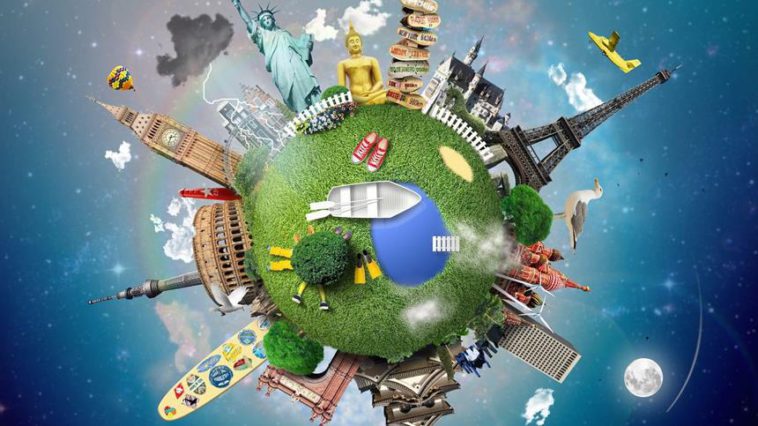By Katerina Papadea,
Tourism and environment are two concepts directly dependent on each other, as the quality of the natural and man-made environment are essential for tourism, while tourism activities can have adverse environmental effects. The paradox, then, is that tourism, without proper management and planning, often destroys the things on which it is based. However, there are many cases where tourism has had a beneficial effect on the environment, even contributing to its protection and conservation, as it is also a way of raising awareness of environmental values, and as it serves as a funding tool for the protection of natural areas, and increases their economic importance.
Initially, the positive environmental impact of tourism, although measured, is substantial. As mentioned, the most common positive environmental impact of tourism is awareness-raising. Many areas undertake the promotion of ecotourism and sustainable tourism, with environmentally-friendly activities and resources, which can help inform and educate people about the environmental impact of tourism. Of course, awareness is accompanied by the need, because, without an environment, tourism cannot succeed. Other positive examples of tourism environmental management are the restrictions of the number of tourists who can simultaneously visit a destination or work, such as cleaning the area for the pleasure of tourists.
On the other hand, when the level of use of visitors is greater than the ability of the environment to cope with this use, then the negative effects of tourism activities appear. Some of these adverse effects are soil erosion, increased pollution, loss of natural habitats, etc. An example of soil erosion, that tourism can cause, is when tourists have walked the same path so often that it erodes the natural landscape. In addition, increased levels of pollution are just as harmful as the forms of pollution caused by industries. The continuous increase of air, road, and rail transport, due to the growing number of tourists and their high mobility, represents 60% more of the generated carbon emissions than other sources. However, technological developments have contributed to the emergence of environmentally-friendly aircraft and fuels, which may not cure the problem, but it is an important step. However, the most important effect, apart from the examples given, is the depletion of natural resources, which affects not only locally, but globally.

More specifically, tourism development can put pressure on natural resources when consumption increases in areas where resources are scarce. The most typical cases are the excessive use of water resources by the tourism industry, which leads to water shortages, degradation of water reserves, and the creation of a larger volume of wastewater, while bringing to the surface the issue of water scarcity in dry areas with hot climates.
Just as tourism threatens the environment, so does climate change, because tourism activities, in turn, threaten tourism. Specifically, high temperatures, especially in Greece, create unfavorable conditions for visitors, leading to discomfort and requiring higher energy consumption for air conditioning, which contributes to further environmental pollution from energy production, and increased costs. Additionally, the increasing frequency of severe and extreme weather events due to climate change is adversely affecting tourism, as with more frequent storms, floods, and fires, the greater the feeling of insecurity and the more suspended tourism will be.
In conclusion, the relationship between tourism and the environment is sustainable. Although some of the effects of tourism on the environment are positive, most of these effects are negative. The solution to many of these problems can be summed up in careful planning and management with the adoption of specific principles. Today, tourism trends and attitudes have changed and new, and more environmentally friendly forms of tourism are developing, such as ecotourism, which tends to reduce the negative environmental impacts rather than eliminate them.
References
- Mirela Stefănica, Gina Ionela Butnaru, Research on Tourists’ Perception of the Relationship between Tourism and Environment, in Globalization and Higher Education in Economics and Business Administration, GEBA, 2013, Available here
- Negative environmental impacts of tourism, theworldcounts, Available here




